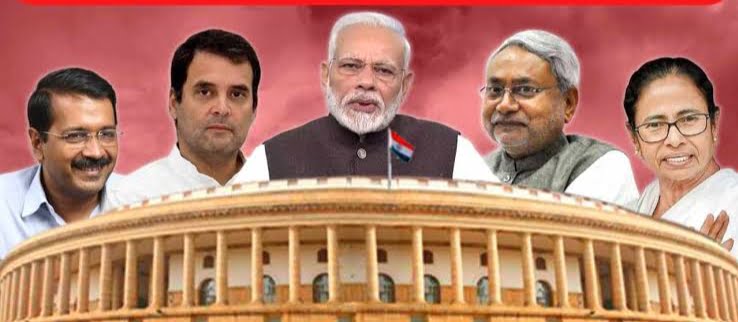
Introduction: The Lok Sabha election, often referred to as the “Festival of Democracy,” is a cornerstone of India’s vibrant political landscape. As the largest democratic exercise in the world, the upcoming Lok Sabha election in 2024 is poised to shape the future of the nation. In this blog post, we will explore the significance of the Lok Sabha election, discuss key factors that may influence its outcome, and analyze its potential impact on India’s political landscape.
- Significance of the Lok Sabha Election: The Lok Sabha, or the House of the People, is the lower house of the Indian Parliament and comprises elected representatives from across the country. The Lok Sabha election allows Indian citizens to exercise their democratic right to elect their representatives, who will form the central government and shape national policies. This election is an opportunity for citizens to participate actively in the democratic process, voice their concerns, and contribute to the decision-making that impacts their lives.
- Key Factors Shaping the Election: a. Political Parties and Alliances: The Lok Sabha election is characterized by intense political campaigning as various political parties and alliances vie for power. Parties will need to carefully strategize and form alliances to maximize their chances of securing a majority in the Lok Sabha.
b. Socio-Economic Issues: Socio-economic factors such as unemployment, poverty alleviation, healthcare, education, infrastructure development, and inclusive growth are likely to dominate the electoral discourse. Political parties that can effectively address these concerns and offer tangible solutions are likely to resonate with voters.
c. Regional Dynamics: India’s vast and diverse landscape presents unique regional dynamics that influence electoral outcomes. Regional parties play a crucial role in many states, advocating for regional interests and influencing coalition dynamics at the national level.
d. Incumbency Factor: The performance of the incumbent government, its policies, and its ability to deliver on promises made during its term will be closely scrutinized by voters. Incumbent governments often face the challenge of convincing the electorate of their achievements while countering opposition campaigns.
- Potential Impact on India’s Political Landscape: The outcome of the Lok Sabha election in 2024 will have a profound impact on India’s political landscape and governance. It will shape the composition of the central government, determine policy priorities, and influence the country’s trajectory in various areas.
a. Policy Direction: The election will set the course for key policy decisions on issues such as economic reforms, social welfare programs, national security, foreign relations, and environmental sustainability. The winning party or coalition will have the mandate to implement its agenda and steer the country’s development.
b. Coalition Dynamics: The formation of alliances and post-election coalition-building will be critical in determining the stability and functioning of the government. The support of regional parties could play a decisive role in forming a coalition government at the center.
c. Implications for Reforms: The election may influence the pace and scope of reforms in areas such as taxation, labor, agriculture, education, and healthcare. The winning party or coalition will have the responsibility to address pressing challenges and seize opportunities for progress.
Conclusion: The Lok Sabha election in 2024 represents a significant moment in Indian democracy, offering citizens the power to shape the nation’s future. As political parties and alliances gear up for the electoral battle, the election will be driven by factors such as political strategies, socio-economic concerns, regional dynamics, and the performance of the incumbent government. The outcome of this election will determine the policy direction, coalition dynamics, and reforms undertaken by the central government. As the countdown begins, all eyes will be on this watershed moment for Indian democracy, as citizens exercise their franchise and contribute to the collective voice that shapes the destiny of the nation.

